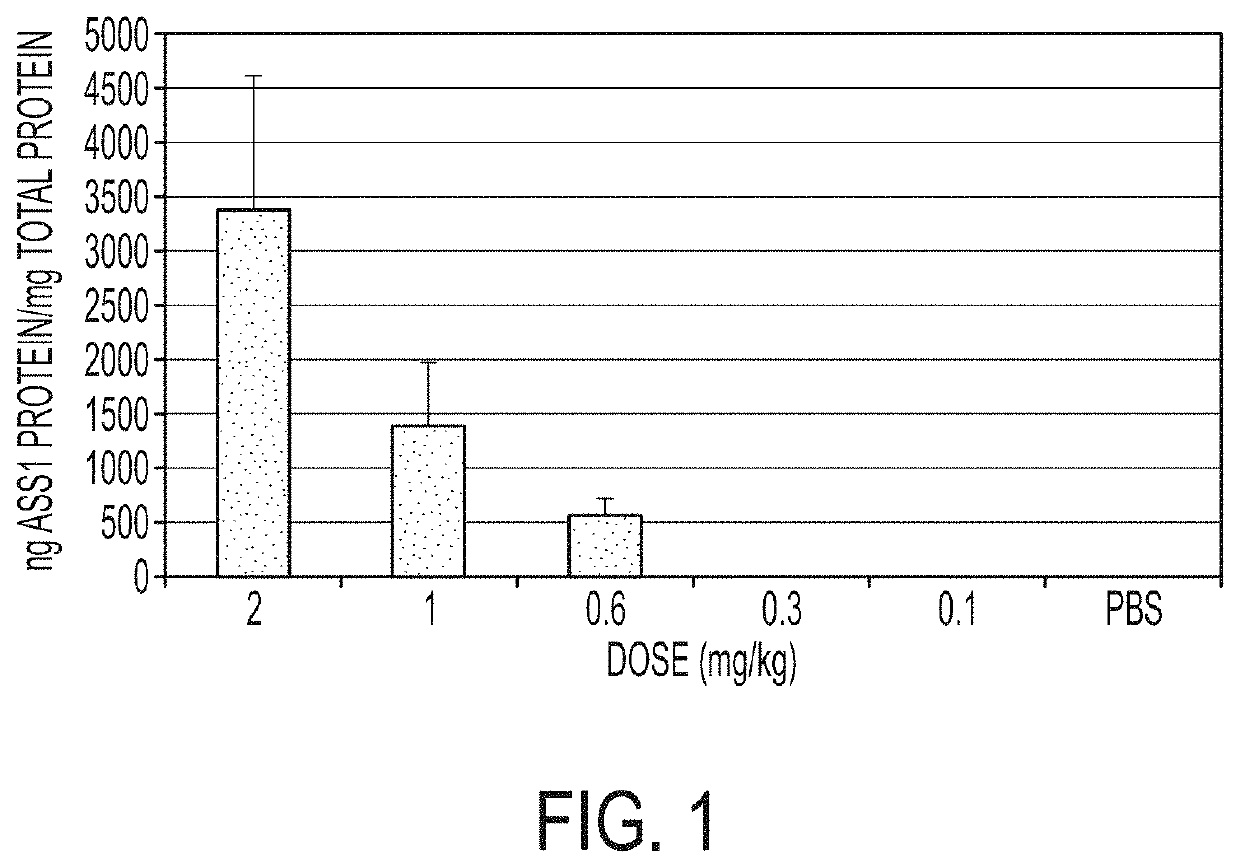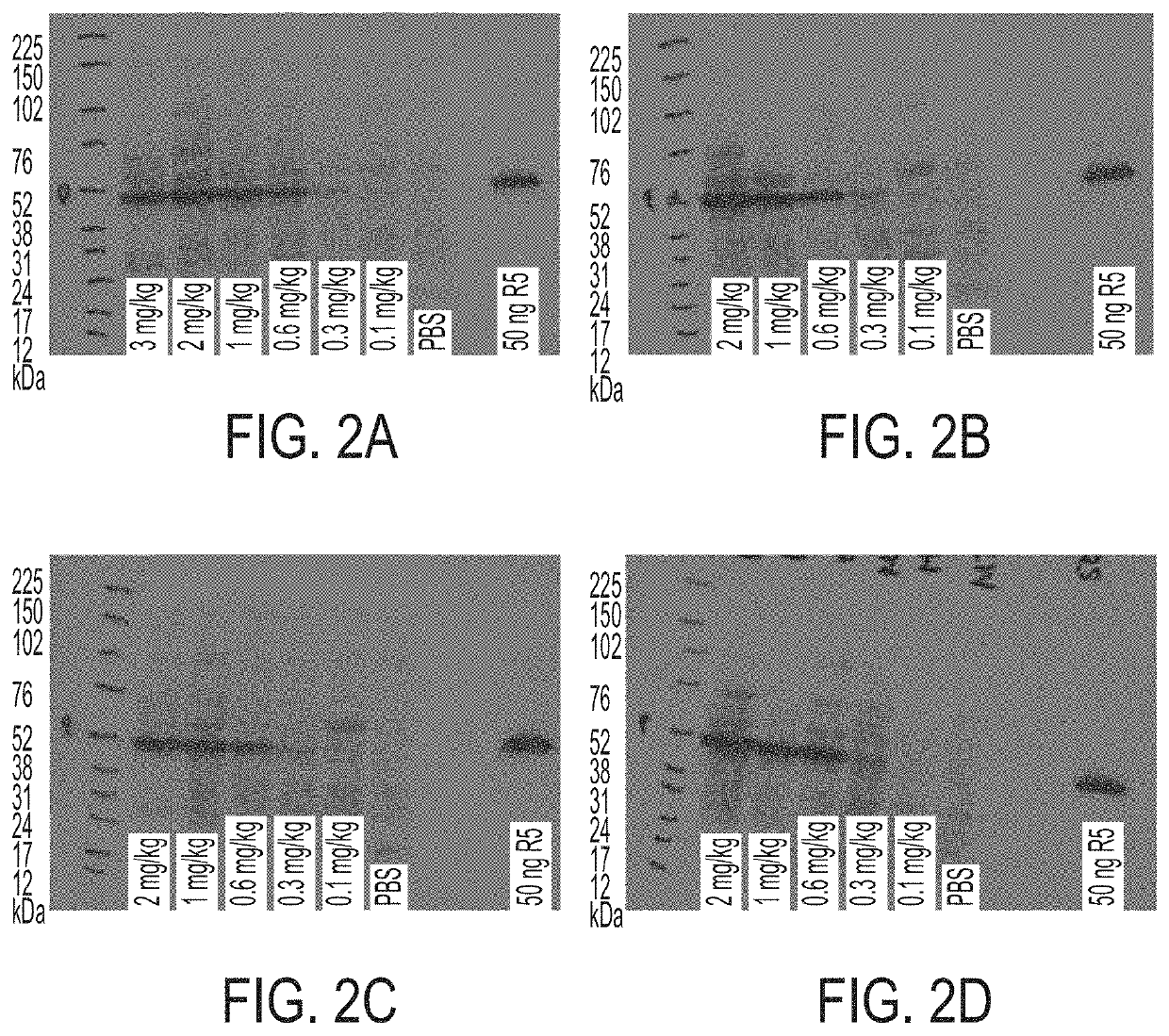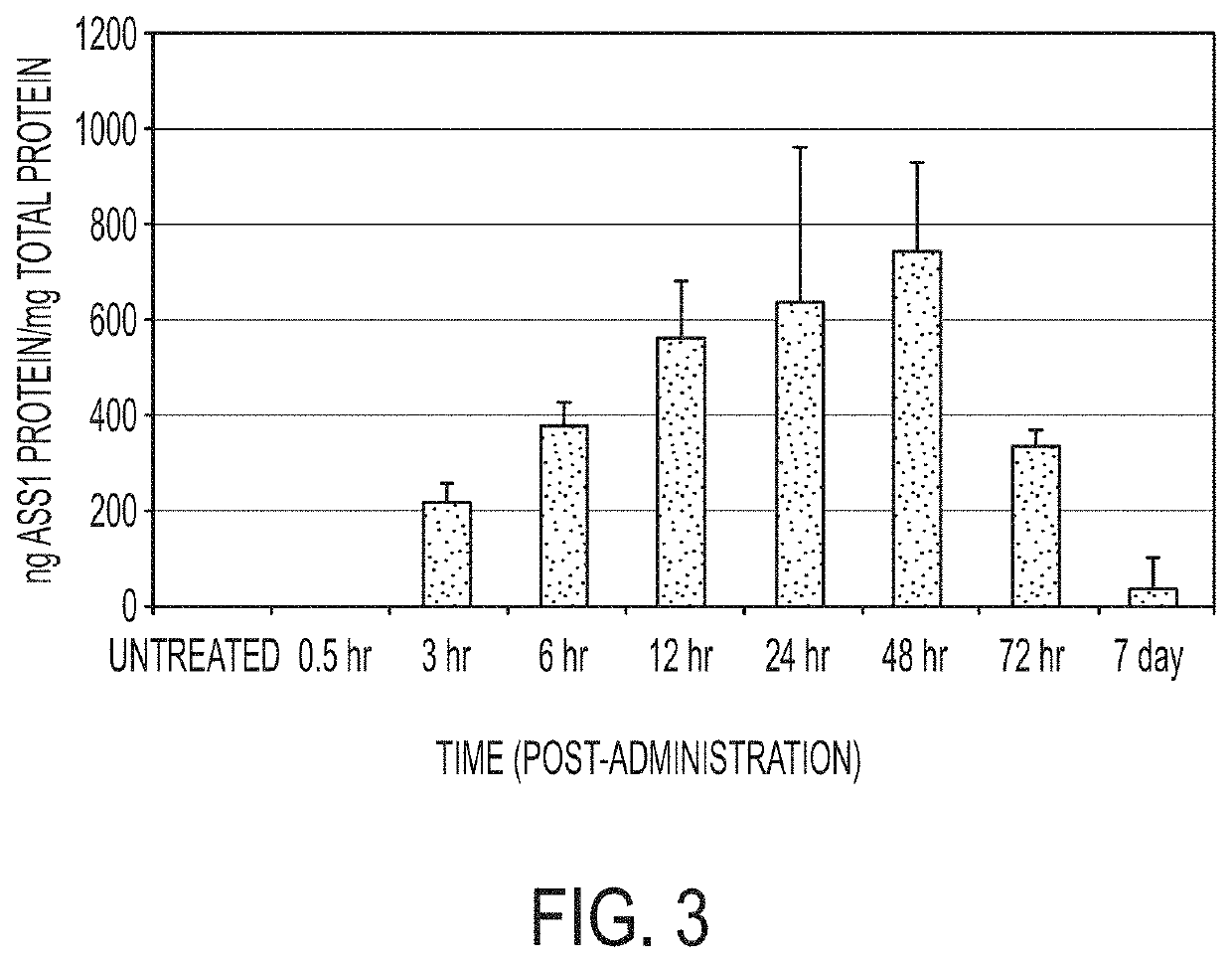MRNA therapy for argininosuccinate synthetase deficiency
a technology of argininosuccinate and argininosuccinate, which is applied in the direction of drug compositions, peptide/protein ingredients, metabolic disorders, etc., can solve the problems of reducing the activity of arginine synthesis, affecting the efficiency of arginine synthesis, and preventing the liver from properly processing excess nitrogen into urea, etc., to achieve high-efficiency and sustained protein production and achieve successful reduction of plasma ammonia levels. ,
- Summary
- Abstract
- Description
- Claims
- Application Information
AI Technical Summary
Benefits of technology
Problems solved by technology
Method used
Image
Examples
example 1
Exemplary Liposome Formulations for ASS1 mRNA Delivery and Expression
[0189]This example provides exemplary liposome formulations for effective delivery and expression of ASS1 mRNA in vivo.
Lipid Materials
[0190]The formulations described herein include a multi-component lipid mixture of varying ratios employing one or more cationic lipids, helper lipids (e.g., non-cationic lipids and / or cholesterol-based lipids) and PEGylated lipids designed to encapsulate mRNA encoding ASS1 protein. Cationic lipids can include (but not exclusively) DOTAP (1,2-dioleyl-3-trimethylammonium propane), DODAP (1,2-dioleyl-3-dimethylammonium propane), DOTMA (1,2-di-O-octadecenyl-3-trimethylammonium propane), DLinDMA (Heyes, J.; Palmer, L.; Bremner, K.; MacLachlan, I. “Cationic lipid saturation influences intracellular delivery of encapsulated nucleic acids”J. Contr. Rel. 2005, 107, 276-287), DLin-KC2-DMA (Semple, S. C. et al. “Rational Design of Cationic Lipids for siRNA Delivery”Nature Biotech. 2010, 28, 17...
example 2
Administration of ASS1 mRNA-Loaded Liposome Nanoparticles
[0217]This example illustrates exemplary methods of administering ASS1 mRNA-loaded liposome nanoparticles and methods for analyzing expressed protein in various target tissues in vivo.
[0218]All studies were performed using male CD-1 mice of approximately 6-8 weeks of age at the beginning of each experiment. Samples were introduced by a single bolus tail-vein injection of an equivalent total dose of 1.0 mg / kg (or otherwise specified) of encapsulated ASS1 mRNA. Mice were sacrificed and perfused with saline at the designated time points.
[0219]Tissues such as liver, spleen, kidney and heart of each mouse were harvested, apportioned into separate parts, and stored in either 10% neutral buffered formalin or snap-frozen and stored at −80° C. for analysis.
[0220]All animals were euthanized by CO2 asphyxiation at designated time points post dose administration (±5%) followed by thoracotomy and terminal cardiac blood collection. Whole bl...
example 3
Efficient ASS1 Protein Expression In Vivo
[0222]This example demonstrates that administration of ASS1 mRNA results in successful protein production and clinical efficacy in vivo.
[0223]The production of human ASS1 protein via codon-optimized hASS1 mRNA-loaded lipid nanoparticles was tested in CD-1 mice as a single, bolus intravenous injection. FIG. 1 represents the amount of human ASS1 protein detected via ELISA when mice were treated with human ASS1 mRNA-loaded cKK-E12-based lipid nanoparticles at various doses. The mice were sacrificed twenty-four hours post-injection and organs were harvested (as described above).
[0224]As shown in FIG. 1, a clear dose response was achieved when measuring liver levels of human ASS1 protein. The dosing range was from 0.10-2.0 mg / kg of encapsulated human ASS1 mRNA. These data demonstrate the ability of the lipid nanoparticles to accumulate in the liver and release the mRNA payload and the liver to process this exogenous mRNA via translation to produce...
PUM
| Property | Measurement | Unit |
|---|---|---|
| diameter | aaaaa | aaaaa |
| size | aaaaa | aaaaa |
| size | aaaaa | aaaaa |
Abstract
Description
Claims
Application Information
 Login to View More
Login to View More - R&D
- Intellectual Property
- Life Sciences
- Materials
- Tech Scout
- Unparalleled Data Quality
- Higher Quality Content
- 60% Fewer Hallucinations
Browse by: Latest US Patents, China's latest patents, Technical Efficacy Thesaurus, Application Domain, Technology Topic, Popular Technical Reports.
© 2025 PatSnap. All rights reserved.Legal|Privacy policy|Modern Slavery Act Transparency Statement|Sitemap|About US| Contact US: help@patsnap.com



